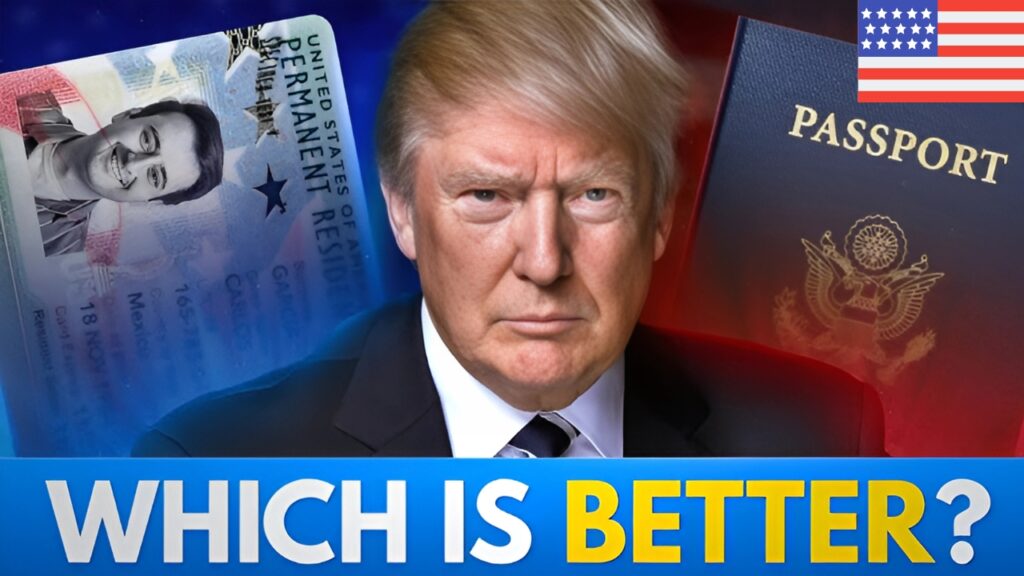
How the Trump administration’s upcoming overhaul of H-1B visas and the citizenship test will impact immigrants and employers in 2025.
What’s New in U.S. Immigration?
The Trump administration is rolling out a fresh set of immigration reforms set to reshape skilled worker visas and naturalization standards. The latest focus? Changing how people get H-1B visas and making the U.S. citizenship test tougher. These moves are being presented as ways to protect American jobs and ensure new citizens are truly knowledgeable about U.S. civics, but how will these changes affect real people and businesses?
H-1B Visa: From Lottery to Wage Priority
Right now, the H-1B visa program distributes 85,000 work permits each year via a lottery system—65,000 standard plus an extra 20,000 for those with a master’s or higher degree from a U.S. institution. But the administration wants to scrap the lottery and instead give preference to applicants with higher salaries.
What’s changing:
No more random lottery. Companies offering higher pay will have their applications prioritized.
The administration’s stance: H-1B is to “supplement, not supplant” American workers.
Critics warn this could disadvantage recent graduates starting their careers and favor big tech firms that can afford top salaries.
Some say it will help address criticism that the visa system is abused to hire cheaper labor from abroad, potentially undercutting American wages.
Key Number Snapshot:
85,000 H-1B visas distributed per year (current system)
Nearly 72% granted to Indian nationals, with the majority of the remainder going to applicants from China
Scheme Table: Old vs Upcoming H-1B Selection Process
| Current Scheme | Proposed Scheme |
|---|---|
| Random Lottery System (65,000 + 20,000 advanced degree) | Priority to Highest Salaries Top-paying companies get preference |
| Equal chance for applicants | Companies offering higher pay given preference |
| Open to various skill levels | Focus on skilled, high-wage positions only |
| Criticized for randomization | Criticized for favoring wealthier applicants |
Citizenship Test: Easier No More
The proposed changes to the U.S. citizenship test are aimed at making the exam harder and more meaningful. Officials claim today’s test is too easy—it currently requires green card holders to answer 6 out of 10 civics questions correctly.
What’s changing:
The administration plans to bring back a tougher 20-question format (answer at least 12 correctly).
The question bank will likely expand, making rote memorization less effective.
Seniors (65+ with 20 years of legal permanent residency) may still take a simpler version.
Intent:
This move is framed as a way to ensure new Americans understand U.S. civics and aren’t merely passing by memorizing responses.
Why Do These Changes Matter?
For employees:
If you’re a foreign professional hoping for an H-1B, a high-paying job offer becomes much more crucial.
For companies:
Expect greater competition for top global talent, and possibly, more paperwork since salary data may factor into consideration.
For aspiring citizens:
Anyone preparing for the citizenship test will need to study a broader range of material and expect deeper questions about American history and government.
Real-World Voices:
Tech companies say they rely on the H-1B system for roles U.S. workers can’t fill.
Critics within the GOP argue H-1B lowers American wages.
Immigration advocates warn tighter rules might deter talented graduates from joining the U.S. workforce.
Quick FAQs
Q1: Will entry-level foreign workers still get H-1B visas?
A: It’s likely to become harder, as priority will shift toward high-skilled, high-wage positions.
Q2: Do these changes affect current Green Card holders taking the test?
A: Yes, future changes will require a more robust understanding of civics, with more challenging questions.
Q3: Who will benefit most from the new H-1B rules?
A: Large employers able to pay higher salaries will have a hiring advantage.
This post aims to explain major upcoming immigration changes without legal jargon, keeping the needs of applicants, workers, and families in mind. Have more questions? Let us know below!
New Trump Law Adds $250 Travel Fee for Some Visitors — Full Details Inside